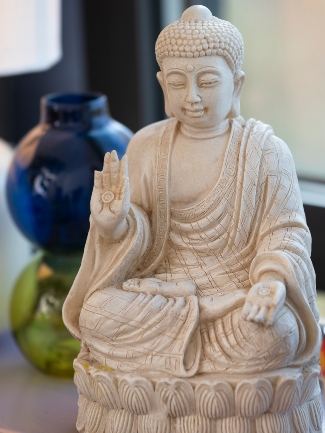Alcohol Counselling
I draw on mindfulness when working with people who wish to change their drinking. If you are new to mindfulness, this is a way of noticing yourself now, in this present moment- just as you are. I tailor this approach to meet the unique needs of each person as we find what works best for them together. Please also see my information on Mindfulness on this website, under "Approach".
Mindfulness is something you can practice and ‘grow’ – it's a different way of being aware of yourself and of noticing your life and the world. Mindfulness or "awareness in the moment" can help to develop healthy responses to stress and cravings.
It is an attitude that you can develop on purpose, by slowing down, noticing things more, describing and accepting what you find. It’s not harsh or judgmental. It is an inner attitude of interest and curiosity, that welcomes and receives yourself and what you perceive. Sometimes it is described as having an inner witness inside yourself, that notices, names and acknowledges your feelings, your thoughts and body sensations, without trying to change them.
Mindfulness is a capacity we all have, if we chose to shift in our focus and let ourselves slow down so we notice what is happening within us and outside of us.
An example of using mindfulness for an alcohol issue. As a therapist, I encourage and guide people in sessions to develop their capacity to be aware and mindful of themselves. It can be particularly useful to piece together the small details of what happened in the build up to feeling the urge to drink. Often, I find that a person may say;
“I don’t really know what happened, I started feeling something, I was uncomfortable when I arrived (at the party), and before I knew it, I had drunk three glasses of wine and don’t remember what I said or did much after that. Now I’m embarrassed and worried that I said something stupid. This is hopeless.”
Here, my response is to actively welcome and appreciate their openness and to begin collaborating together. This helps us to understand more about what happened. - a bit like friendly detectives looking for helpful clues. So, I might say “Let’s try to relive that night: what you were thinking then, how you were speaking to yourself, how your body was feeling, what sensations you noticed, that led to this happening.” This is, of course, in the form of a natural conversation. We are exploring together, in an open and accepting way, seeking understanding and any new awareness.
I may then use gentle questioning to explore the specific details some more, as we connect to the experience in more detail. So, perhaps what can be remembered is a feeling of awkwardness on entering the social situation, with thoughts that compared themselves unfavorably to the other people there; perhaps seeing themselves as less confident, interesting, or attractive. We may then find that this thought process led to subtle changes in the body – maybe the palms felt sweaty, the breathing went shallower, and the shoulders tightened. In turn this lead to a whole reaction inside them, experienced as; “this is awful, intolerable, I can’t stand it”. With this the urge to drink hits, offering a way to quell the feeling, to help them relax.
In sessions, through noting this entire pattern, it can be important to then explore the assumption and feelings around the belief that the escape from the “intolerable” feeling is to have another drink.
I have seen how people learn to be curious about what’s happening with their drinking. They start to know the early signs that lead to a build up to having a drink, essentially, they become more conscious of what they’re doing.
This leads to more breathing space for other ways of coping to be developed and tried out. This process of taking care of one’s needs, which I call ‘resourcing’, can relate to things like; resting when tired, eating when hungry, being alone when overwhelmed by being with people, or seeking nourishing company when isolated.
A clearer view of the reconnection between emotions and cravings may be seen through counselling, which in turn helps prepare for future stressful moments with a growing confidence, that alcohol is not the only coping strategy.







